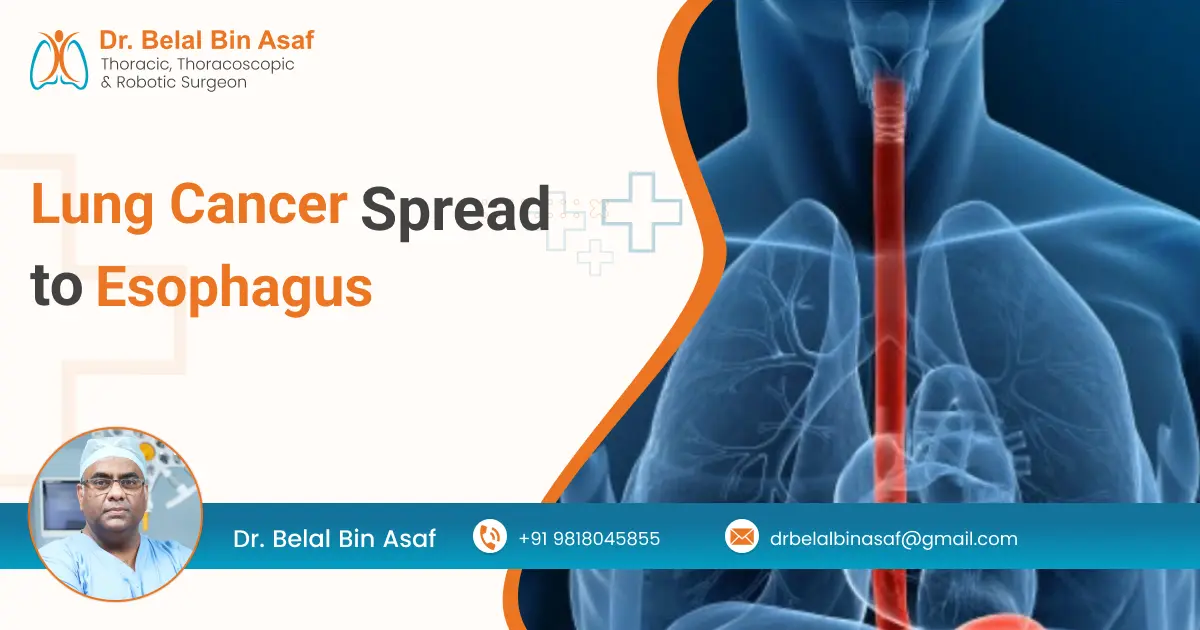While it’s widely known that lung cancer often metastasizes to the brain, bones, liver, and adrenal glands, spread to the esophagus is far less common—but it does occur. This rare but important manifestation of advanced lung cancer can be challenging to diagnose and manage, often requiring a nuanced, multidisciplinary approach.
Contents
- 1 How Rare Is It for Lung Cancer to Spread to the Esophagus?
- 2 Which Part of the Esophagus Is Most Often Affected?
- 3 What Are the Symptoms of Lung Cancer Spread to the Esophagus?
- 4 Why Is It Difficult to Diagnose?
- 5 Treatment Options for Esophageal Metastasis from Lung Cancer
- 6 Why Early Detection Matters?
- 7 Final Thoughts
- 8 Frequently Asked Questions
- 8.1 Q1: How often does lung cancer spread to the esophagus?
- 8.2 Q2: Can you survive if lung cancer spreads to the esophagus?
- 8.3 Q3: What are the first signs that lung cancer may have spread to the esophagus?
- 8.4 Q4: How is esophageal metastasis confirmed?
- 8.5 Q5: What treatments are available for esophageal blockage caused by cancer?
How Rare Is It for Lung Cancer to Spread to the Esophagus?
Esophageal metastasis from lung cancer is considered uncommon, especially when compared to other metastatic sites. In fact, many such cases are identified post-mortem during autopsies rather than during a patient’s lifetime. This underscores the importance of clinical awareness, particularly when patients with known lung cancer present with esophageal symptoms, as these could potentially indicate the development of esophageal cancer or metastasis to the esophagus. Identifying esophageal metastasis early in lung cancer patients is crucial for providing appropriate treatment and improving patient outcomes.
Which Part of the Esophagus Is Most Often Affected?
When lung cancer spreads to the esophagus, it most commonly involves the middle third of the esophagus. This region lies in close proximity to the lungs and major bronchi, making it a potential target for direct invasion or lymphatic spread, especially from central lung tumors.
What Are the Symptoms of Lung Cancer Spread to the Esophagus?
Interestingly, many patients may not experience any symptoms, especially in the early stages of esophageal involvement. However, when symptoms do arise, they may include:














 +91-9818045855
+91-9818045855
